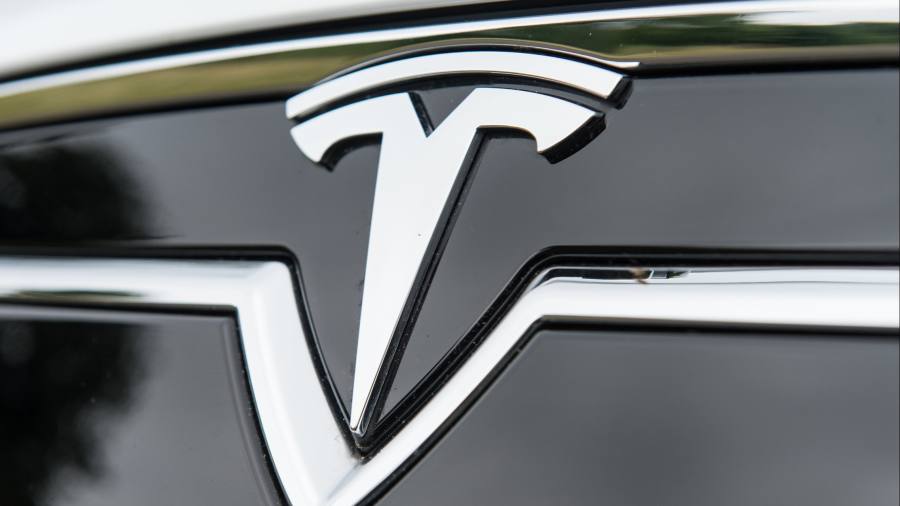Elon Musk said Tesla could deliver as many as 2mn cars this year after the electric vehicle maker dramatically cut prices across its portfolio to prioritize expansion of its customer base at the short-term expense of margins.
The company’s chief executive on Wednesday sought to allay investor worries that demand is waning as Tesla faces rising competition from other big carmakers and tougher economic conditions.
“The most common question we’ve been getting from investors is about demand. . . so I want to put that concern to rest,” Musk said in an earnings call. “Thus far in January, we’ve seen the strongest orders year-to-date than ever in our history. We are currently seeing orders at almost twice the rate of production.
“We think demand will be good despite probably a contraction in the automotive market as a whole,” he added. “I think there’s just a vast number of people that want to buy a Tesla car but can’t afford it. And so these price changes really make a difference for the average consumer.”
The company’s stock, which was battered in 2022 as it lost about $700bn in market value, is now up nearly 40 per cent this month, a stamp of confidence from shareholders in Tesla’s move to cut prices early in January to jump-start demand. Shares rose more than 5 per cent in after-hours trading.
“The intelligent thing to do, long term, is to get as much adoption of Tesla as possible,” said Ross Gerber, a longtime Tesla bull at Gerber Kawasaki, a wealth management firm. “For investors, there is confidence that scaling will bring down the average cost per vehicle, so the margins will come back, hopefully by the end of the year.”
The update came as the electric vehicle company reported record revenues of $24.3bn for the December quarter, up 37 per cent from last year. Analysts had expected $24.2bn. Net income of $3.7bn was slightly ahead of forecasts for $3.6bn.
However, Tesla’s automotive gross margins, a closely watched metric, shrunk during the quarter to 25.9 per cent, down nearly 5 percentage points from a year ago.
Tesla said its “average selling prices” have been on a downward trajectory for years and that improving affordability “is necessary to become a multimillion vehicle producer”. It aims to boost margins by scaling production, introducing lower-cost models and making its factories more efficient.
It is projecting that it will build about 1.8mn cars in 2023, up more than 30 per cent from 1.3mn in 2022, but Musk told investors that barring any big supply issues it may be able to ship 2mn vehicles. “We’re not committing to that, but I’m just saying that’s the potential,” Musk said.
Ben Bajarin, analyst at Creative Strategies, said: “Two million sales potential could also be much more likely with the price decrease, which will only continue to cement their market share lead in EVs.”
Tesla had its first full-year net profit in 2020, earning $721mn. Two years later it has earned $12.6bn, more than the $10.5bn expected profit at General Motors or the $8bn expected at Ford, according to S&P Global Market Intelligence estimates.
That has given Tesla room to cut prices by up to 20 per cent, a move Gerber compared to “putting a sword in the side of all his competition” as the race for EV dominance heats up.
Tesla warned more broadly of “an uncertain macroeconomic environment”, citing “rising interest rates” as a particular challenge. It said it was trying to offset these challenges with cost controls across its supply chain.
Recommended
At the start of January the company underwhelmed investors when it reported delivering 405,278 vehicles in the final quarter of 2022 — falling short of forecasts for between 420,000 and 430,000. It was still an 11 per cent increase from the record it hit in the previous quarter.
Still, Tesla has beaten analyst forecasts for net income in 13 of the past 14 quarters, according to Garrett Nelson, analyst at CFRA Research.
He called it a “big positive” that the futuristic but long-delayed Cybertruck, which will have Tesla enter a new segment of buyers, is scheduled to begin production this summer.
However, Musk said any effect on Tesla’s bottom line from the Cybertruck would not be felt until 2024.
“The start of production is always very slow,” he said. “It increases exponentially, but it’s always very slow at first.”
Tesla’s market valuation of about $450bn remains well below its $1.2tn peak in 2021, reflecting concerns about its ability to keep up a fast pace of growth amid steep competition and questionable demand because of economic headwinds.
Musk’s $44bn acquisition of Twitter last year, meanwhile, has worried Tesla investors about whether he will be too distracted to steer the company through a challenging stretch.

